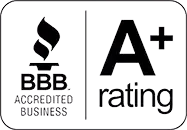How to close a business in Florida begins with understanding the legal steps and preparing for a thorough process. Closing a business, whether due to retirement, market shifts, or other personal reasons, marks a significant phase in any entrepreneur’s journey. It’s a process laden with emotional weight but also brimming with legal and financial implications that require careful navigation.
This guide aims to shed light on the essential steps and considerations involved in closing a business in Florida, helping business owners transition with clarity and compliance. From the initial decision-making to filing the necessary paperwork and settling any remaining financial matters, I’ll cover the key stages to ensure your business closure is as straightforward and stress-free as possible.
Whether you’re at the beginning of considering closing your business or ready to take the final steps, this post will provide you with the knowledge you need to close your business in Florida properly.
Understanding the legal requirements to close a business in Florida
Closing a business in Florida involves more than just locking the doors and walking away. The state has specific legal requirements that must be followed to ensure the business is closed properly and legally. These requirements are designed to protect the business owner, creditors, employees, and the state’s interests. Here’s what you need to know:
Check with the Florida Department of State
First and foremost, business owners must consult the Florida Department of State Division of Corporations. This agency oversees business registrations and closures in the state. They provide the necessary forms and guidelines for dissolving a business entity, whether it’s a corporation, partnership, or limited liability company (LLC).
File Articles of Dissolution
One of the primary steps in legally closing your business in Florida is filing Articles of Dissolution. This formal document notifies the state that your business intends to dissolve and cease operations. The filing process involves submitting specific information about your business and any closing decisions made by owners or shareholders.
Settle Financial Obligations
Florida law requires businesses to settle their debts and financial obligations as part of the closing process. This includes paying off loans, resolving creditor claims, and ensuring all outstanding taxes are paid. Failure to do so can result in legal complications and personal liability for the business owners.
Notify the IRS and Close Tax Accounts
Aside from state requirements, businesses must also notify the Internal Revenue Service (IRS) of their closure. This involves filing a final tax return and closing out any business-related tax accounts, such as payroll tax accounts if you had employees.
Cancel Licenses and Permits
To fully extricate your business from legal obligations in Florida, you must also cancel any business licenses or permits you hold. This prevents future billing and removes your liability for business activities associated with those licenses.
Understanding and adhering to these legal requirements are essential steps in the business closure process in Florida. They ensure that the dissolution is recognized by the state and that the business owner is released from future legal and financial obligations related to the business. It’s advisable to consult with a legal professional to navigate this process smoothly and ensure compliance with all state laws and regulations.
How to close a business in Florida?
Closing a business in Florida is a multi-step process that requires attention to detail to ensure compliance with state laws and regulations. Here’s a clear, step-by-step guide to help you navigate this process:
1. Vote to dissolve the business
The first step is for the business owners, partners, or shareholders to formally decide to close the business. This decision typically requires a formal vote according to the company’s operating agreement or bylaws. Document this decision in the meeting minutes for your records.
2. Filing articles of dissolution
Once the decision to dissolve is made, you need to file Articles of Dissolution with the Florida Department of State Division of Corporations. This document officially starts the dissolution process and requires information such as the business name, date of dissolution, and reason for closing. There may be a filing fee associated with this submission.
3. Notifying creditors and settling debts
Florida law mandates that businesses notify their creditors of the impending closure. Provide a clear deadline for submitting claims and a mailing address for claim submission. After notification, evaluate the claims and settle all valid debts, including loans, contracts, and supplier agreements.
4. Handling Employees
If your business has employees, ensure you comply with federal and state laws regarding their final paychecks and benefits. Notify employees of the business closure as early as possible, and provide them with information about unemployment benefits.
5. Canceling business licenses and permits
To avoid future liability, cancel any business licenses, permits, and registrations you hold with local, state, and federal agencies. This step is crucial to formally remove the business’s legal obligations and prevent future billing or fees.
6. Closing tax accounts
File a final tax return with the IRS and the Florida Department of Revenue, indicating that it’s a final return. Close all tax accounts, including sales tax and employer withholding tax accounts, to finalize your tax obligations.
7. Distributing remaining assets
After settling all debts and obligations, distribute the remaining business assets among the owners or shareholders according to ownership shares or as outlined in the operating agreement or bylaws.
This step-by-step guide provides a roadmap for closing your business in Florida legally and efficiently. While the process can seem daunting, following these steps ensures that you meet all legal requirements and minimize potential liabilities. Consulting with legal and financial professionals can provide additional guidance and help streamline the closure process.
Finalizing the closure
Once you have navigated through the procedural steps of closing your business in Florida, a few final actions are necessary to conclusively end your business operations and ensure everything is in order. Finalizing the closure properly not only adheres to legal requirements but also provides peace of mind. Here’s what you need to do:
Keep records of the closure process
Document every step taken to close your business, including votes to dissolve, notifications sent to creditors and employees, final tax returns, and the distribution of assets. Maintain these records for several years as proof of compliance with state and federal laws. This documentation is crucial in the event of any future inquiries or audits.
Distribute remaining assets
After paying off all debts and obligations, distribute the leftover assets among the business owners or shareholders. This distribution should be in accordance with the proportions outlined in the company’s founding documents or as per the ownership stakes. Assets might include physical items, intellectual property, and any remaining cash after settlements.
Confirm cancellation of licenses and permits
Double-check that you have officially canceled all necessary licenses, permits, and business registrations. This step is crucial to avoid any unexpected fees or legal complications related to lapsed permits or licenses believed to be inactive.
Conduct a final review
Go over all steps taken to ensure nothing has been overlooked. This includes a final check on all legal and tax obligations, a review of asset distributions, and a confirmation that all necessary paperwork has been filed with the appropriate entities.
By meticulously following through with these final steps, you ensure that your business is closed properly, leaving no loose ends that could lead to complications in the future. This thorough approach solidifies the closure of your business in Florida, allowing you to move forward with confidence.
Finalizing your business closure with attention to detail and adherence to legal requirements is the last step in a conscientious process. It underscores the importance of a methodical approach to ending business operations, ensuring that all obligations are met and that the closure is recognized legally and financially.
Seeking professional assistance
Navigating the closure of a business in Florida involves intricate legal and financial processes. Seeking professional assistance can prove invaluable in handling every step correctly and efficiently. Here are key reasons to consider professional help:
- Legal expertise: Business attorneys ensure compliance with legal requirements and help with filings and dispute resolutions.
- Financial and tax advice: CPAs or tax advisors can manage final tax returns, advise on debt settlements, and navigate potential tax implications.
- HR and employee transition: HR consultants guide on employee notifications, severance, and benefits, ensuring legal compliance.
- Business valuation and asset liquidation: Professional valuators assess asset value; liquidation specialists assist in selling assets efficiently.
- Peace of mind: Professional assistance offers reassurance that all aspects of your business closure are handled correctly, allowing you to focus on future plans.
While seeking professional assistance entails additional costs, is worth it. The investment can save considerable time and money in the long run by avoiding mistakes, penalties, and unresolved liabilities. As you consider closing your business in Florida, remember that you don’t have to go through it alone. Leveraging the expertise of legal, financial, and business professionals can ensure a smooth and compliant closure process.
In conclusion
Closing a business in Florida is a significant endeavor, fraught with legal, financial, and emotional challenges. By meticulously following the outlined steps—from voting to dissolve the business to settling all financial obligations and formally finalizing the closure—you can navigate this complex process with confidence. Avoiding common pitfalls and understanding the importance of each phase ensures that your business closure complies with all state regulations, safeguarding your future interests.
Remember, you’re not alone in this journey. Seeking professional assistance can provide valuable insights and peace of mind if you don’t know how to close a business in Florida. It’s always better to ensure that your business closes smoothly and efficiently. With careful planning and the right support, you can close your business in Florida successfully, laying a strong foundation for your next venture.


